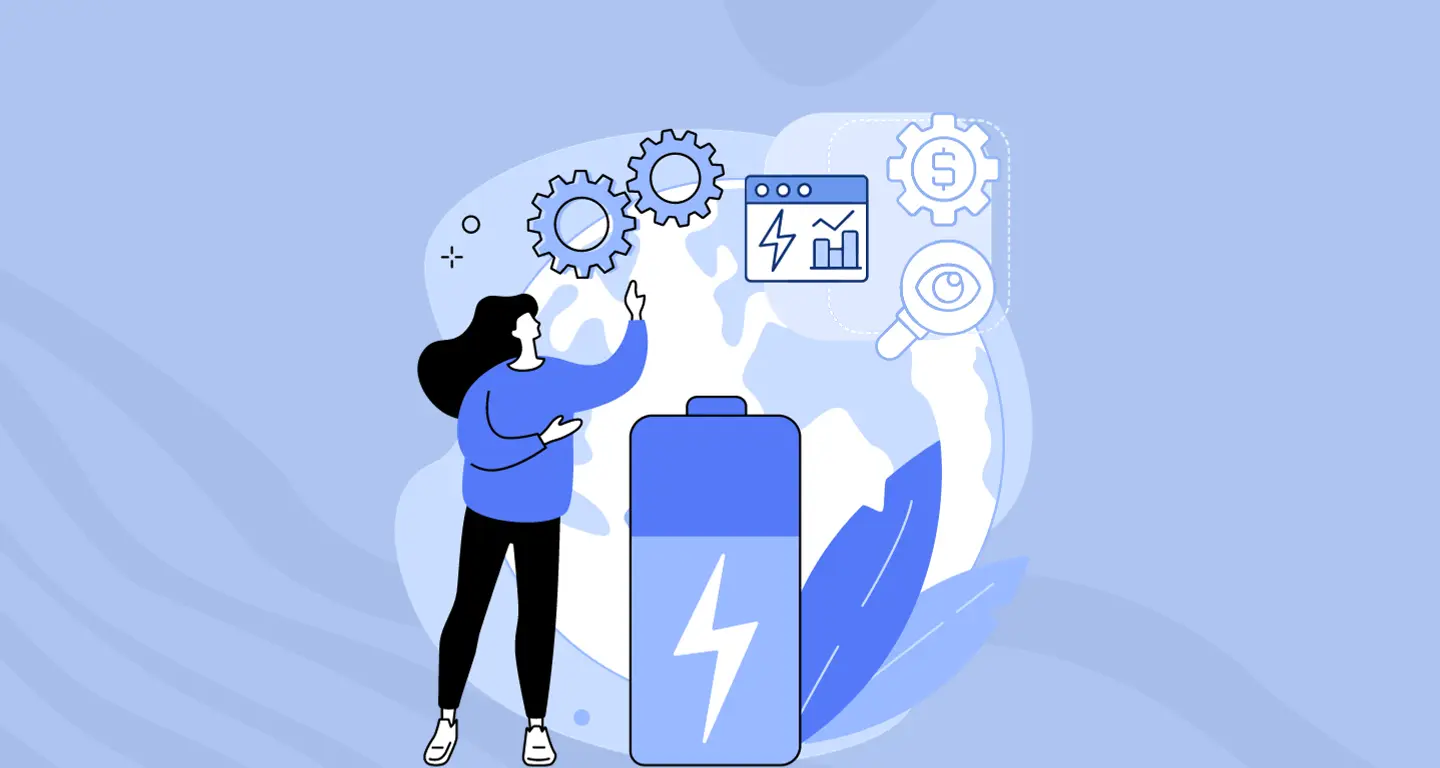General
100 Stats that Prove the Importance of Customer Satisfaction, Retention, & Loyalty
Article written by Jaby K J
Growth Marketer at SurveySparrow
11 min read
23 August 2024

In today’s highly competitive business landscape, customer satisfaction, retention, and loyalty have become more important than ever. These factors can significantly impact a company’s revenue, profitability, and growth. In this article, we have compiled 100 compelling statistics and metrics that demonstrate the crucial role customer satisfaction, retention, and loyalty play in the success of a business.
The article is divided into three sections, each focusing on one of the critical factors – customer satisfaction, retention, and loyalty.
- The first section highlights the importance of customer satisfaction by showing how negative experiences can lead to lost customers and revenue.
- The second section demonstrates the value of customer retention, indicating that it can be a more cost-effective strategy than acquiring new customers.
- The third section emphasizes the significance of customer loyalty, which can result in higher profits, increased customer lifetime value, and improved brand reputation.
Let’s dive into the statistics and metrics in more detail.
- Customer Satisfaction
- Customer Retention
- Customer Loyalty
- How SurveySparrow Helps Increase Customer Satisfaction
- Bottom Line
Customer Satisfaction
The first set of statistics focuses on customer satisfaction, demonstrating how vital it is for businesses to provide exceptional customer service and experiences.
- 91% of customers who had a bad experience will not do business with the same company again.
- Only 1 out of 26 unhappy customers will complain, meaning many customers may leave without giving a business a chance to fix the problem.
- 33% of customers will consider switching to a competitor after a single bad experience.
- 74% of customers are likely to switch brands if they find the purchasing process too difficult.
- 81% of customers are willing to pay more for better customer service.
- 95% of customers who had a bad experience with a company will tell others about it.
- Customer retention rates increase by 5% for every 1% increase in customer satisfaction.
- 64% of customers expect companies to respond and interact with them in real-time.
- Companies with higher customer satisfaction ratings see a 12% increase in stock prices.
- 40% of customers will stop doing business with a company if they receive poor customer service.

Customer Retention
One of the key metrics that businesses should focus on is customer retention. Keeping existing customers happy and engaged is more cost-effective than acquiring new ones.
Here are some stats that highlight the importance of customer retention:
- The cost of acquiring a new customer can be up to five times higher than the cost of retaining an existing one. This shows that retaining existing customers can be a more cost-effective strategy than acquiring new ones. (Harvard Business Review)
- Companies that prioritize customer retention over acquisition are 60% more profitable. This highlights the potential benefits of focusing on retaining existing customers. (Bain & Company)
- The probability of selling to an existing customer is 60-70%, while the probability of selling to a new customer is only 5-20%. This shows that existing customers are more likely to make additional purchases than new customers. (Marketing Metrics)
- Repeat customers spend 67% more than new customers. This highlights the potential value of retaining existing customers. (Inc.)
- Increasing customer retention rates by 5% can increase profits by 25-95%. This highlights the potential financial benefits of improving customer retention. (Harvard Business Review)
- A 5% increase in customer retention can increase profits by up to 95%. This highlights the potential impact of customer retention on a company’s bottom line. (Bain & Company)
- The top 10% of customers spend 3 times more than the other 90% of customers. This highlights the potential value of high-value customers. (Harvard Business Review)
- The average customer retention rate for companies in the S&P 500 is 45%. (Invesp)
- Customers who have made multiple purchases are 9 times more likely to convert than first-time customers. (Omnisend)
- Loyal customers are worth up to 10 times as much as their first purchase. (White House Office of Consumer Affairs)

Customer Loyalty
Building customer loyalty is crucial for long-term success. Loyal customers not only make repeat purchases, but they also serve as advocates for your brand.
Here are some stats that highlight the importance of customer loyalty:
- 86% of customers are willing to pay more for a better customer experience. (Oracle)
- 66% of customers will switch brands if they feel unappreciated. (Salesforce)
- Companies with strong customer loyalty programs have 25% higher customer retention rates than those without. (SaaSquatch)
- 55% of customers will recommend a company if they have a great loyalty program. (Bond)
- 77% of customers have chosen, recommended, or paid more for a brand that provides a personalized experience. (Salesforce)
- 57% of customers are more likely to recommend a company that exceeds their expectations. (Salesforce)
- 70% of loyal customers will recommend a company to others. (Oracle)
- 80% of customers are more likely to do business with a company that offers a personalized experience. (Epsilon)
- Companies with a 5-star rating on Yelp see an average of 19% growth in revenue. (Harvard Business School)
- 92% of customers trust recommendations from friends and family over any other type of advertising. (Nielsen)
- A 5% increase in customer loyalty can increase profits by up to 85%. (Bain & Company)
- Companies that create an emotional connection with their customers have a 306% higher lifetime value. (Harvard Business Review)
- Customers who feel emotionally connected to a brand have a 306% higher lifetime value. (Motista)
- 68% of customers will stay loyal to a company that has a good loyalty program. (Bond)
- 77% of customers have chosen, recommended, or paid more for a brand that provides a personalized experience. (Salesforce)
- 57% of customers are more likely to recommend a company that exceeds their expectations. (Salesforce)
- 70% of loyal customers will recommend a company to others. (Oracle)
- 80% of customers are more likely to do business with a company that offers a personalized experience. (Epsilon)
- Companies with a 5-star rating on Yelp see an average of 19% growth in revenue. (Harvard Business School)
- 92% of customers trust recommendations from friends and family over any other type of advertising. (Nielsen)
- A 5% increase in customer loyalty can increase profits by up to 85%. (Bain & Company)
- Companies that create an emotional connection with their customers have a 306% higher lifetime value. (Harvard Business Review)
- Customers who feel emotionally connected to a brand have a 306% higher lifetime value. (Motista)
- 68% of customers will stay loyal to a company that has a good loyalty program. (Bond)
- Companies that provide an excellent customer experience are 3.5 times more likely to retain customers. (Qualtrics)
- 73% of customers are willing to try a new brand if it has a good reputation for customer service. (Qualtrics)
- 72% of customers are more likely to make a purchase from a company that has positive reviews. (BrightLocal)
- Companies with high customer loyalty have a Net Promoter Score (NPS) that is 3 times higher than their competitors. (Bain & Company)
- 71% of customers who leave a company do so because of poor customer service. (KISSmetrics)
- Loyal customers are 5 times more likely to forgive a mistake than new customers. (Customer Think)
- 50% of customers will increase their purchases with a company that offers a good loyalty program. (Bond)
- Companies that provide a personalized experience see a 19% increase in sales. (Salesforce)
- Companies with a 5-star rating on Yelp see a 49% increase in foot traffic. (Harvard Business School)
- 81% of customers are more likely to continue doing business with a company that offers a loyalty program. (Bond)
- Companies that prioritize customer experience have a 60% higher customer retention rate than those that don’t. (Salesforce)
- 67% of customers are willing to pay more for a great experience. (Oracle)
- Companies with a high NPS have a 20% higher customer retention rate than those with a low NPS. (Delighted)
- 80% of customers will do business with a company again if it resolves a complaint quickly. (Eptica)
- 83% of customers are willing to refer a company if they have had a positive experience. (Texas Tech University)
- Companies that provide an excellent customer experience have a 5.7 times higher NPS than those that don’t. (Qualtrics)
- 84% of customers will abandon a company if it provides a poor experience. (Qualtrics)
- Companies that provide a personalized experience see a 20% increase in sales. (Epsilon)
- 67% of customers are willing to pay more for a great experience. (Zendesk)
- Companies with a 5-star rating on Yelp see a 35% increase in revenue. (Harvard Business School)
- 77% of customers have chosen, recommended, or paid more for a brand that provides a personalized experience. (Epsilon)
- Companies that prioritize customer experience see a 1.6 times higher customer lifetime value than those that don’t. (Qualtrics)
- 56% of customers will stop doing business with a company if it provides a poor experience. (Qualtrics)
- Companies that provide a personalized experience have a 20% increase in customer satisfaction. (Epsilon)
- 70% of customers will do business with a company again if it resolves a complaint quickly. (Kolsky)
- Companies that provide an excellent customer experience see a 7.1 times higher revenue growth rate than those that don’t. (Qualtrics)
- 80% of customers are more likely to do business with a company that offers a personalized experience. (Epsilon
- Companies with a high NPS have a 1.5 times higher revenue growth rate than those with a low NPS. (Delighted)
In conclusion, these 100 statistics clearly demonstrate the critical role that customer satisfaction, retention, and loyalty play in the success of a business. It is essential for companies to prioritize the customer experience by providing exceptional service, personalized interactions, and effective resolution of customer complaints.
How SurveySparrow Helps Increase Customer Satisfaction

Now that you understand the importance of measuring customer satisfaction, it’s time to explore a solution that can help you gather valuable feedback.
That’s where SurveySparrow comes in.
SurveySparrow is an intuitive and user-friendly online survey software that allows businesses to create, distribute, and collect feedback from their customers and employees.
With SurveySparrow, you can choose from a variety of survey types, such as:
These surveys can help you measure customer satisfaction and loyalty. Whether you’re looking to measure customer satisfaction and employee engagement or conduct market research, SurveySparrow has got you covered.
A personalized walkthrough by our experts. No strings attached!
Bottom Line
In conclusion, the 100 statistics presented in this article highlight the critical importance of customer satisfaction, retention, and loyalty in driving business success.
Businesses can improve these key metrics and achieve long-term growth and profitability by prioritizing the customer experience and leveraging tools like SurveySparrow to gather feedback and insights.
Start 14 Days free trial

Jaby K J
Once chasing a half-cooked Ph.D. dream in Literature amidst the stacks of academia, Jaby has successfully pivoted to become a product marketer in the SaaS industry, leveraging a rich background in research and a deep understanding of creating compelling narratives.
Related Articles

Customer Experience
Enhancing Customer Experience in Utilities: A Comprehensive Guide
10 MINUTES
26 September 2023

Customer Experience
Customer Experience Dashboard: How to Use It for Sharper Insights
7 MINUTES
20 June 2023

Best Of
Voice of the Customer Survey: Questions, Examples, Templates & Methodologies
19 MINUTES
22 March 2022

Best Of
16 Actionable Tips On How To Increase Survey Response Rates
14 MINUTES
14 February 2021
